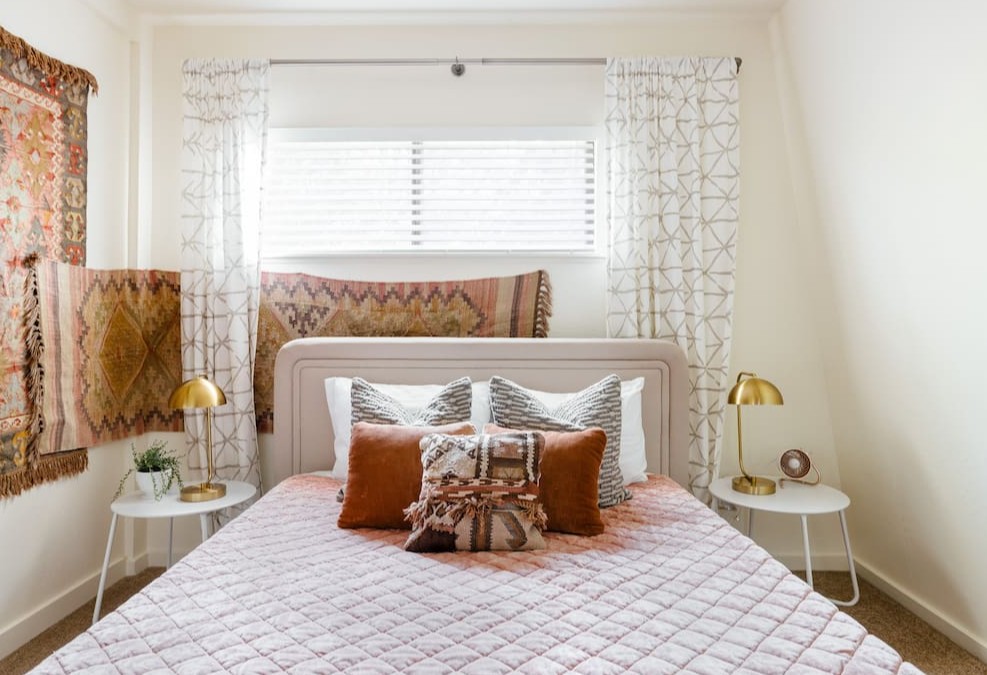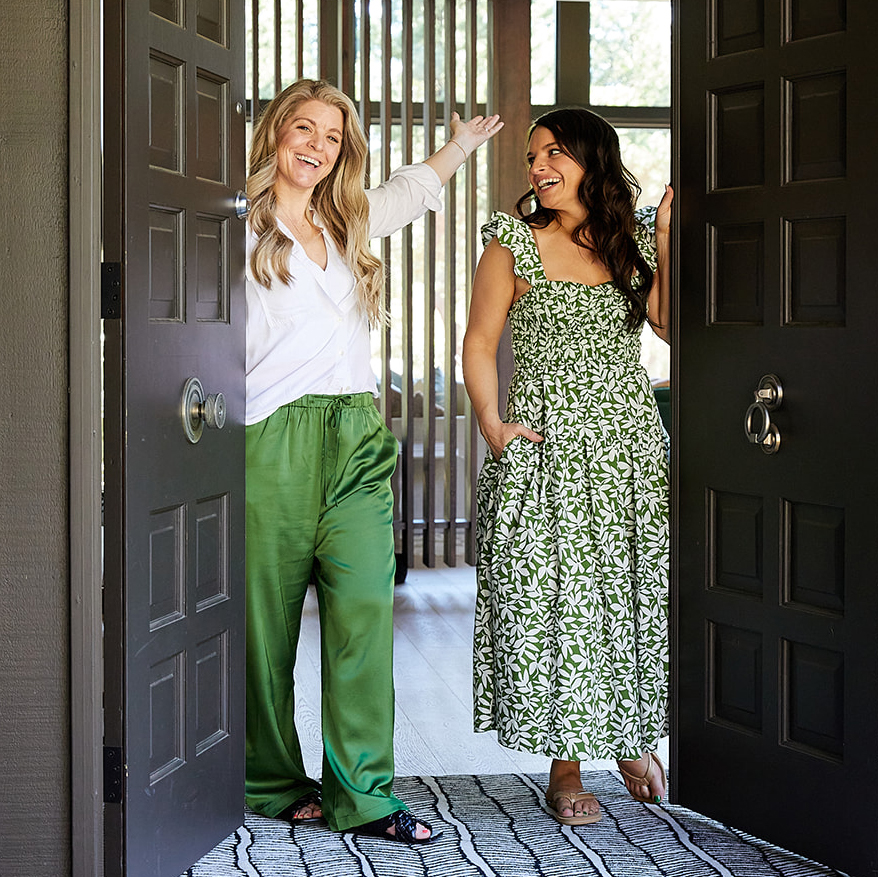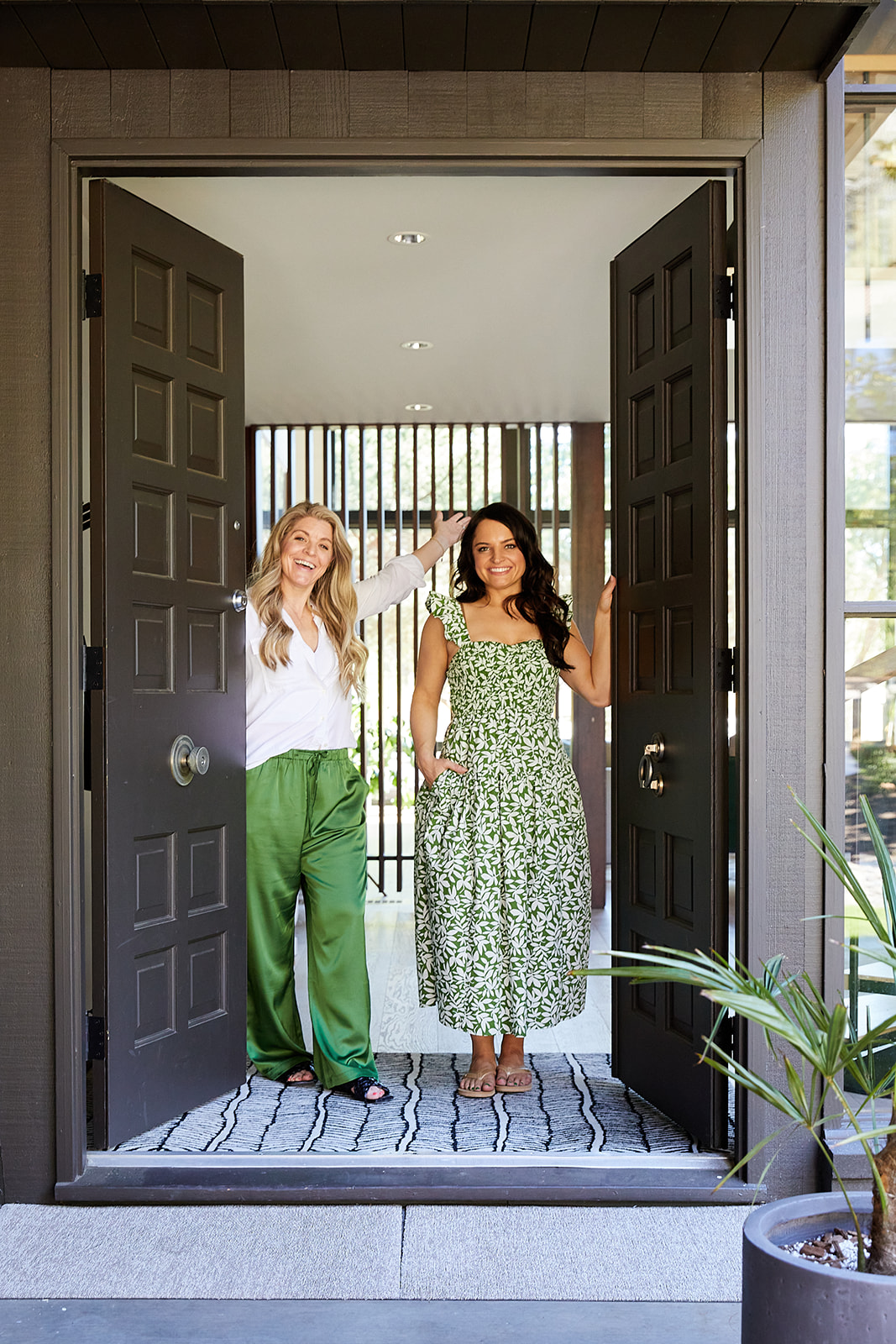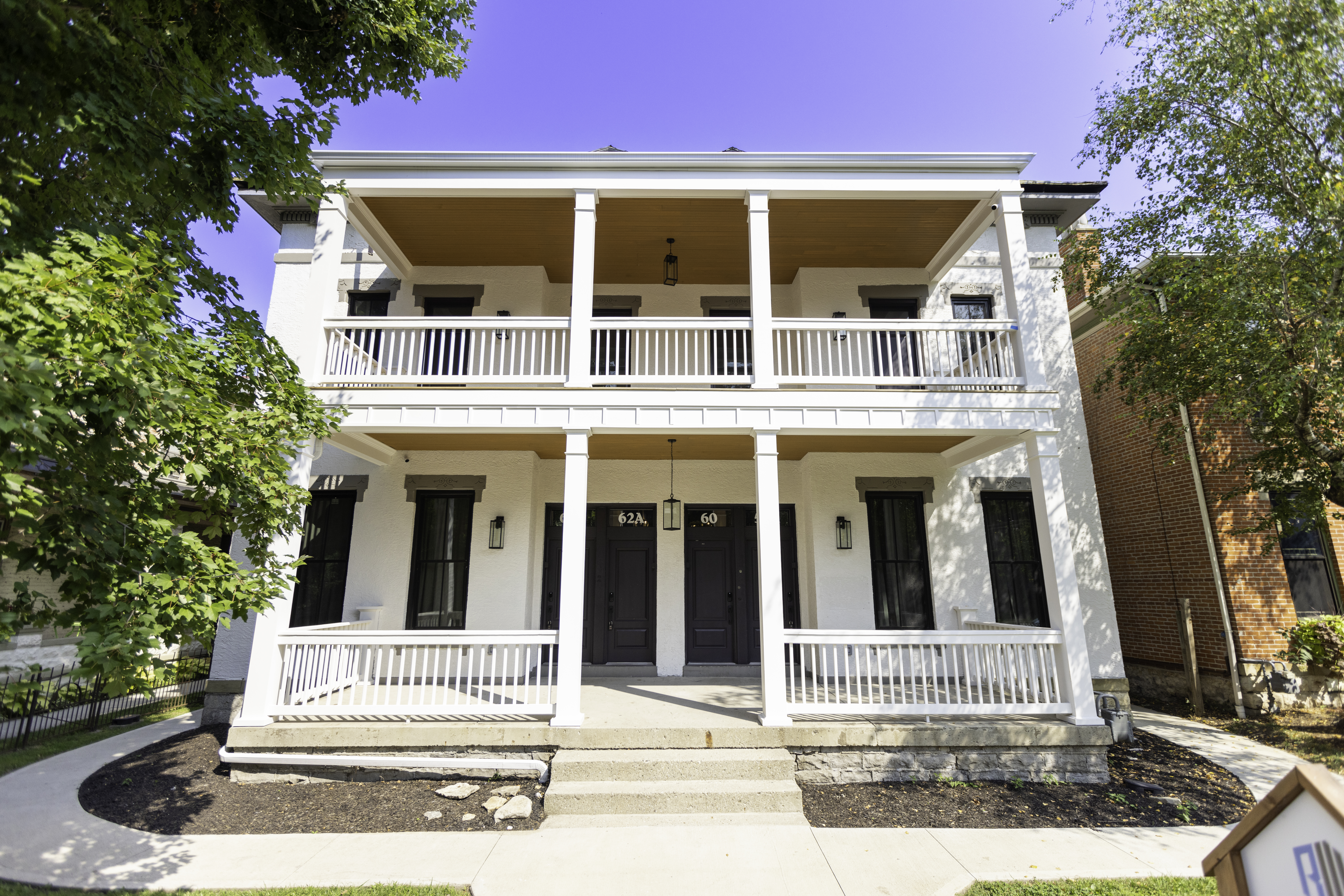
Should You Charge Per Guest on Airbnb? A Complete Guide to Airbnb Guest Fees
Is your Airbnb showing up as more expensive than your competitor’s, and you don’t even know why? It’s a frustrating spot to be in. You have great photos, glowing reviews, but bookings are slower than you’d like. There’s a single setting that might be quietly sabotaging your success, and it’s the Airbnb extra guest fee.
You probably turned it on thinking it made perfect sense. More people mean more cleanup and higher bills. But this one choice could be the very reason potential guests are scrolling right past your listing. We are going to break down why this fee often backfires and show you a much better way to price your rental. Rethinking the additional guest fee could completely change your booking calendar.
We’ve rounded up all of our Airbnb Hosting Must-Haves right here in our Amazon Store. Click here to grab everything you need to curate your property and start earning 5-star reviews.

What Exactly Is the Airbnb Extra Guest Fee?
- What Exactly Is the Airbnb Extra Guest Fee?
- How This One Setting Can Kill Your Bookings
- The Hidden Costs of Nickel-and-Diming Your Guests
- “But More Guests Cost Me More.” – What To Do Instead
- Insights from the Airbnb Community Cafe
- How to Check and Turn Off Your Airbnb Extra Guest Fee
- Final Considerations for a Healthy Listing
- Conclusion
What Exactly Is the Airbnb Extra Guest Fee?
Let’s get on the same page about what this setting does. The extra guest fee is an additional fee you can charge for each guest who stays beyond a base number that you set. For example, you might price your home for two guests. But if a group of four books, you can charge an additional fee, say $25, for the third and fourth person.
This fee is separate from your base nightly rate, the cleaning fee, and the Airbnb service fee. When a guest views the final price breakdown, they will see your base rate, the extra guest charges, the cleaning fee, and taxes all listed out. For many Airbnb hosts, this seems like a fair way to manage the costs associated with more people.
On the surface, the logic holds up. You are getting compensated for the additional wear and tear, extra laundry, and higher utility use. You are running a business, and those costs are real. But the way this particular fee applies and appears to guests during their search is where the trouble starts for many hosts.
How This One Setting Can Kill Your Bookings
You might think you’re being savvy by setting a lower base rate to attract couples and small groups. This strategy has a major flaw. It directly impacts how your property is displayed in Airbnb’s search results, and not in a good way.
You Look More Expensive in Search Results
Picture a guest starting their search. They plug in their destination, their dates, and most importantly, their group size—let’s say four people. Airbnb’s system doesn’t show them your lower base rate. Instead, it automatically calculates the total nightly price, including your extra guest fees for any additional guest.
So, if your base rate is $150 for two guests and you charge $25 for each extra person, your listing shows up at $200 per night for that group of four. Meanwhile, your competitor, who prices their similar home for four guests at a flat $160, looks like a much better deal. You’ve been knocked out of the running before a guest even clicks on your listing.
Since price and guest count are primary search filters when a user is told to search enter a keyword, this inflation can remove you from a potential guest’s budget entirely. They may never even see your beautiful property. You are losing bookings simply because of a perception created by your fee structure.
It Tanks Your Conversion Rate
Now, let’s talk about what happens if someone does click on your guest fee listing. Your conversion rate is simply the percentage of people who look at your property and then actually book it. A healthy listing needs people to follow through. High conversion rates are a strong signal to Airbnb that your property is desirable, and it’s a critical factor in how high you appear in search results.
When guests see an attractive initial price but then watch the total jump up as they confirm their guest count, they often back out. This is a lost conversion. It tells the algorithm that something about your extra guest fee listing is unappealing. Maybe guests think the price is misleading or just too high after all the additional fees add up.
Airbnb aims for listings to have a healthy conversion rate. If hundreds of people view your property but only a few book, your rate plummets. The algorithm may then penalize your listing by showing it to fewer people, assuming it can’t seal the deal. This is the opposite of what you want from your fee listing.
Comparing Pricing Models at a Glance
To see the impact clearly, look at how two pricing strategies appear to a potential guest. Imagine two identical properties that can host four people.
| Feature | Host A (Extra Guest Fee) | Host B (All-Inclusive Price) |
|---|---|---|
| Base Nightly Rate | $150 (for 2 guests) | $190 (for up to 4 guests) |
| Extra Guest Fee | $25 per additional guest | $0 |
| Price Shown in Search (for 4 guests) | $200 | $190 |
| Guest Perception | Initial price seems low, but final price feels high; potential “sticker shock”. | Price is transparent and straightforward from the start. |
| Likely Guest Action | May exit preview and choose the cheaper-looking option. | More likely to click and book due to competitive, clear pricing. |
If you’re rethinking your pricing strategy, it’s also worth revisiting your OTA (online travel agency) game plan. Optimizing your listing across platforms like Airbnb, Vrbo, and Booking.com can help you reach a wider audience and smooth out dips in occupancy. In our post Maximize Profits: Using OTA Channels for Airbnb Success, we break down how to diversify your exposure, manage multiple listings efficiently, and boost your bottom line with a multi-channel approach. It pairs perfectly with a clean, guest-friendly pricing model.
The Hidden Costs of Nickel-and-Diming Your Guests
Beyond the algorithm, charging an extra guest fee can hurt something just as important: the guest experience. How people feel about your pricing has a lasting impact on their stay and your reviews.
The Problem with Perception
No one likes feeling like they are being squeezed for every penny. Think about the last time you booked a hotel. A room with two queen beds typically costs the same whether one person or four people use it. Guests have come to expect this type of straightforward pricing.
Airbnb guests are already very aware of the cleaning fee and service fee. When you add another charge on top of that, it can feel excessive. You want to create a sense of welcome and generosity, but fee-stacking can create a feeling of being nickeled-and-dimed, which sets a negative tone before their trip even starts.
You are Inviting Unwanted Conflict
This fee structure can also create awkward situations. What happens when guests realize they can save money by being dishonest about their group size? Some will book for four people but show up with six, hoping you won’t notice. This forces you into the role of a police officer, not a host.
You then have to decide whether to confront them and ask for more money, which is incredibly uncomfortable for everyone involved. If they refuse to pay, your only recourse might be to contact Airbnb and report inappropriate behavior, which can escalate the conflict. It can even lead to the guest attempting to report inappropriate content in your listing out of spite.
It’s also worth remembering that guest plans can change. A local friend might decide to stay over last minute, not out of malice but because it’s convenient. Punishing this with an extra fee creates friction that can easily be avoided by following clear host rules and having a simple pricing model.
While you’re optimizing your listing for better bookings, don’t forget about the tiny details that lead to five-star reviews. One of our most-loved tools? The Forgot Something Basket. It’s a simple but powerful touch that guests rave about. Stock it with essentials like toothpaste, chargers, and earplugs, and you’ll be surprised how often it shows up in reviews. Grab our free checklist right here to create your own unforgettable guest experience.
“But More Guests Cost Me More.” – What To Do Instead
We hear you. The reasons for charging more for extra guests are valid. More people do create more work and use more resources. But you don’t have to use a punitive guest fee to cover your costs. There are better, smarter ways to handle your pricing.
Solution 1: Price for Your Max Capacity
The simplest and cleanest solution is to price your property for the maximum number of people it can comfortably accommodate. If your home sleeps six, set your base rate to be profitable for a group of six. Do a little homework. Calculate your “cost per reservation” for a full house.
Bake that cost directly into your nightly rate. This includes higher utility bills, extra cleaning time, and more consumables like coffee and toilet paper. This way, your pricing is transparent and competitive. When a group of six is searching, your price will be in line with the market, not artificially inflated.
And if a smaller group of two or three books it? Great. They get a spacious place, and you make a healthier profit on that stay. You have simplified your pricing, eliminated a point of friction, and positioned yourself to attract the larger groups you can host without surprising them with additional guest charges.
Solution 2 (Advanced): The Parent-Child Listing Strategy
For those with larger homes, especially ones that are harder to fill during weekdays, there’s a more advanced strategy. It’s called the “parent-child” listing method. It allows you to attract different group sizes without using the extra guest fee.
Here’s how it works. You create two distinct listings for the same property in your airbnb account. The “parent” listing is for the entire home at its max capacity (for instance, a 4-bedroom that sleeps 8). Then, you create a second “child” listing for a portion of the home (a 2-bedroom that sleeps 4).
When the smaller listing is booked, you simply lock the doors to the extra bedrooms and bathrooms. Of course, you must sync the calendars for both listings so you never get a double booking. This is crucial for managing future reservations and preventing conflicts.
This approach works because you are offering two genuinely different products. The smaller configuration has a lower nightly rate and a lower cleaning fee because there’s less space to use and clean. You can now appear in searches for both large and additional guests with pricing that makes sense for what you are offering. Many Airbnb services and channel managers can help you manage linked calendars automatically.
Insights from the Airbnb Community Cafe
This exact issue is a frequent subject in the Airbnb community. We often see a post question on forum topics about whether the additional guest fee helps or hurts. The latest reply on one thread from a contributor england was particularly insightful for hosts worldwide, not just in the United Kingdom.
A local host shared that their bookings from guest hosts and travelers increased significantly after removing the fee. The consensus in the community cafe and among local host clubs is that guests value simplicity. Discussions in the community center often conclude that a flat rate is better than a confusing price breakdown with many guest charges.
Many host guides available in the host resource center echo this sentiment. If you are struggling with this topic, you can always start your own thread or send a pm reply to a seasoned host for advice. Don’t be afraid to experiment with your price settings and continue reading what other successful hosts are doing.
How to Check and Turn Off Your Airbnb Extra Guest Fee
Many airbnb hosts set up this fee when they first created their listing and haven’t looked at it since. It is a good idea to go audit your settings to make sure you know exactly what potential guests are seeing. It only takes a minute to review your extra guest charges.
Here is how to find and adjust the setting:
- Log in to your Airbnb host account on a computer.
- From the host menu, select Calendar to view your listing calendar. When you click calendar, your property’s schedule will appear.
- Choose the specific listing you want to check.
- A panel will appear on the right side of the screen. At the top, find and click on Pricing and availability.
- Scroll down to the Additional charges section. This is where your various price settings are located.
- Look for the line that says Extra guest fee.
- To disable it, change click the amount to $0. If you click price, you can edit it. Once you set the additional fee to zero, the fee no longer applies.
- Make sure to save your changes. This adjustment will affect all future reservations, but not bookings that are already confirmed unless a trip change is initiated.
Once you’ve set this fee to zero, take a fresh look at your base rate. Adjust it to be competitive for your home’s maximum guest count based on your local market. Check what number of guests you’ve set as your maximum and price accordingly.
Final Considerations for a Healthy Listing
Maybe you were using the extra guest fee as a way to deter large gatherings or parties. That is a legitimate concern for every host. But again, there are more effective tools for managing your property that align with community guidelines.
First, make sure your house rules are crystal clear about maximum occupancy and your policy on parties or events. Be firm but polite in your listing description and your host rules. A clear rule is more of a deterrent than a small fee that a rowdy group would gladly pay.
Second, consider a privacy-safe noise monitoring device. Services like NoiseAware or Minut can alert you if decibel levels get too high for too long, without ever recording conversations. This helps you protect your property and your relationship with your neighbors. This proactive step is much better than dealing with inappropriate content or behavior after the fact. It’s one of the best Airbnb updates in technology for hosts.
Takeaways
The Airbnb extra guest fee can seem like a smart business move, but it often does more damage than good. By making your listing appear more expensive in search results, it can significantly lower your visibility and hurt your conversion rate. It can also create a negative perception for guests and lead to awkward confrontations over how many guests pay.
Instead, focus on creating a simple, transparent pricing strategy. Price your home for its maximum capacity by building your costs into a single nightly rate. For larger homes, exploring a parent-child listing can open you up to a much wider range of travelers. It’s a better strategy than adding an airbnb extra charge that causes confusion.
By abandoning the confusing Airbnb extra guest fee, you will build more trust with guests and put yourself in a much stronger position to get booked. You simplify the experience for the current user viewing your listing, making them more likely to post reply with a booking confirmation instead of hitting exit preview. This single change to your fee structure could be the key to a fuller calendar.
Calling All Hosts: The Hosting Handbook
If you loved this post we invite you to check out our one-stop-shop solution for hosts everywhere —the Hosting Handbook! While you can download all the easy to consume, step-by-step tips we use in our own hosting business and create the ultimate “book” the Hosting Handbook is so much more than that! If you’ve consumed or content for years (or just met us!) this is the reference guide for all the amazing and tactical tips we have for running a profitable and, more importantly hospitable, short-term rental. How do we price for pets? How do we fold our towels? What sheets do we buy? How do I purchase a short-term rental? All these questions (and more!) can be answered in the Hosting Handbook! Check it out now!
Happy Hosting!



show comments
HIDE comments